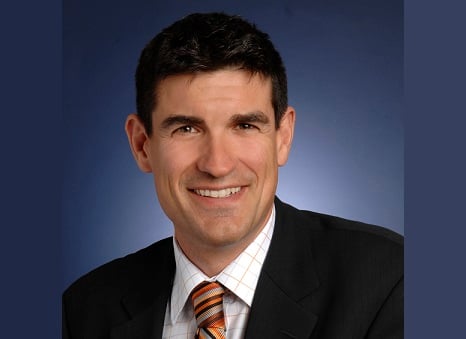New poll shows lifecos close to same trust level as fast food restaurants and pipelines and resources

Canada’s life and health insurance companies have some way to go to gain the trust of the general public according to a new study. The recently released Environics Communications CanTrust Index showed that 28% of respondents trusted lifecos, placing these firms close to the bottom of the scale. As a means of comparison, the highest trust levels were reported for hospitals (62%), followed by universities and colleges (60%), while life and health providers just edged out fast food restaurants (27%) and pipelines and resources (26%). At the very bottom end of the scale was one of the nation’s nascent industries, which recorded the same score as a rather unpopular international leader, as Josh Cobden, SVP, Corporate & Financial at Environics Communications explains.
“The bottom of the barrel are marijuana producers at 13%, which is equal to the level of trust Canadians have in Donald Trump – we asked that question specifically and they scored the same.”
The 2017 CanTrust Index is the second annual poll conducted by the firm and offers companies a useful tool to gauge the feelings of their customers. Trust is a valuable commodity in the world of business, but once it is lost it’s hard to win back. As Cobden outlines, the index shows certain topics that feature heavily when it comes to trust.
“When it comes to trusting an organisation, there is a clear ranking with Canadians,” he says. “These are things like employing people in the local community, giving to charities, being Canadian, and open and accessible leadership.”
For life and health insurance companies, the low score of 28% doesn’t really match with this criteria, although improvements can always be made.
“Lifecos are already huge employers, they contribute lots to not-for-profits and charities,” he says. “So it’s really a question of communicating those, then building up the visibility of the leadership. Canadians want to hear from CEOs.”
There are companies excelling in that regard, with Cobden identifying two in particular that are paying a great deal of attention to getting their message across.
“To that end, I think Sun Life CEO Dean Connor and Michael Serbinis from League deserve kudos,” he says. “They regularly participate in media interviews, and both were just named by Twitter Canada among 40 Canadian executives who use the platform well to communicate and engage.”
The CanTrust Index also showed some significant divergence when it comes to different segments of the population. The highest levels of trust are with women, new Canadians and residents of Québec, while the opposite is true for those living in Western Canada. Finances also had an influence with households with incomes below $60,000 slightly less trusting in some areas compared to those households with income over $60,000. However, there was no evidence of a major socio-economic trust gap. This sort of data is something insurance providers would do well to pay attention to, according to Cobden.
“Another point would be to segment your audience,” he says. “The data shows there are significant differences in how Canadians trust the life and health industry. Women and new Canadians are more favorable, so there should be attention paid to these audiences.”
Related stories:
Strong growth for life insurance sales in first quarter
Sun Life Reports Q1 2017 results
“The bottom of the barrel are marijuana producers at 13%, which is equal to the level of trust Canadians have in Donald Trump – we asked that question specifically and they scored the same.”
The 2017 CanTrust Index is the second annual poll conducted by the firm and offers companies a useful tool to gauge the feelings of their customers. Trust is a valuable commodity in the world of business, but once it is lost it’s hard to win back. As Cobden outlines, the index shows certain topics that feature heavily when it comes to trust.
“When it comes to trusting an organisation, there is a clear ranking with Canadians,” he says. “These are things like employing people in the local community, giving to charities, being Canadian, and open and accessible leadership.”
For life and health insurance companies, the low score of 28% doesn’t really match with this criteria, although improvements can always be made.
“Lifecos are already huge employers, they contribute lots to not-for-profits and charities,” he says. “So it’s really a question of communicating those, then building up the visibility of the leadership. Canadians want to hear from CEOs.”
There are companies excelling in that regard, with Cobden identifying two in particular that are paying a great deal of attention to getting their message across.
“To that end, I think Sun Life CEO Dean Connor and Michael Serbinis from League deserve kudos,” he says. “They regularly participate in media interviews, and both were just named by Twitter Canada among 40 Canadian executives who use the platform well to communicate and engage.”
The CanTrust Index also showed some significant divergence when it comes to different segments of the population. The highest levels of trust are with women, new Canadians and residents of Québec, while the opposite is true for those living in Western Canada. Finances also had an influence with households with incomes below $60,000 slightly less trusting in some areas compared to those households with income over $60,000. However, there was no evidence of a major socio-economic trust gap. This sort of data is something insurance providers would do well to pay attention to, according to Cobden.
“Another point would be to segment your audience,” he says. “The data shows there are significant differences in how Canadians trust the life and health industry. Women and new Canadians are more favorable, so there should be attention paid to these audiences.”
Related stories:
Strong growth for life insurance sales in first quarter
Sun Life Reports Q1 2017 results


